As a Ryobi power tool owner, one of the most important questions you may have is how long it takes to charge your Ryobi batteries. The charging time of your Ryobi battery depends on several factors and may vary depending on the battery model and the charger you are using. In this article, I will guide you through the process of understanding how long it takes to charge your Ryobi batteries, what factors affect charging time, and how to prolong your battery’s lifespan.
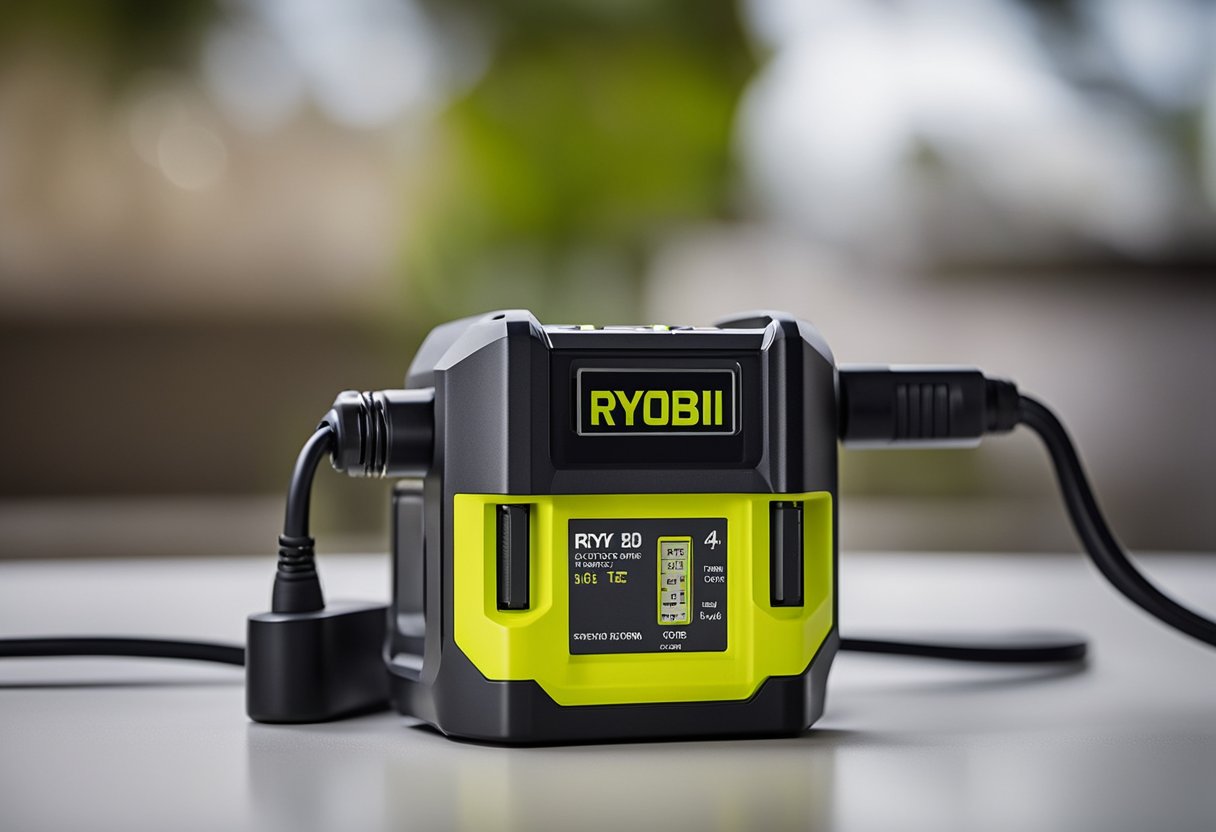
Understanding Ryobi Batteries is essential to know how long it takes to charge them. Ryobi offers different types of batteries, including Lithium-Ion, NiCad, and NiMH, each with different charging times. The Lithium-Ion batteries are the most popular due to their long-lasting power and quick charging time. The NiCad and NiMH batteries take longer to charge and have a shorter lifespan. In the next section, we will discuss how to charge your Ryobi batteries and how long it takes to charge them.
Key Takeaways on How Long Do Ryobi Batteries Take to Charge
- The charging time of your Ryobi battery depends on several factors, including the battery model and charger you are using.
- Lithium-Ion batteries are the most popular due to their long-lasting power and quick charging time.
- To prolong your battery’s lifespan, it is essential to choose the right charger and understand charging efficiency.
Understanding Ryobi Batteries
As a DIY enthusiast or professional tradesperson, understanding Ryobi batteries is crucial to ensure that your tools and equipment are always powered up and ready to go. Ryobi offers a range of batteries, including lithium-ion batteries, that are designed to provide high-capacity energy storage for prolonged use.
One of the most important factors to consider when it comes to Ryobi batteries is battery capacity. The capacity of a battery is measured in ampere-hours (Ah), which refers to the amount of current that a battery can provide over a period of one hour. Ryobi offers a range of battery capacities, including 1.5Ah, 2.0Ah, and 6.0Ah batteries, which can provide varying levels of power and runtime depending on your needs.
It’s important to note that the capacity of a battery is not the only factor that determines how long it takes to charge. Other factors, such as the charging method and the temperature, can also affect the charging time. Ryobi offers a range of chargers that are designed to work with their batteries, and these chargers are optimized to provide fast and efficient charging.
When it comes to charging time, Ryobi batteries can take anywhere from 30 minutes to several hours to fully charge, depending on the battery capacity and the charging method. For example, a 1.5Ah Ryobi 18V battery can take around 30 minutes to charge using a fast charger, while a 6.0Ah Ryobi 40V battery can take several hours to charge using a standard charger.
Overall, understanding Ryobi batteries is essential to ensure that you get the most out of your tools and equipment. By choosing the right battery capacity and charger, and by following the recommended charging guidelines, you can ensure that your batteries are always ready to go when you need them.
Charging Ryobi Batteries
When it comes to charging Ryobi batteries, there are a few things to keep in mind. First, it’s important to use the correct charger for your battery. Ryobi offers a range of chargers, including standard chargers, fast chargers, and rapid chargers. Each charger has different specifications, so it’s important to choose the right one for your needs.
The charging process for Ryobi batteries is relatively straightforward. Simply insert the battery into the charger, making sure it is properly aligned. The charger will typically have indicator lights or an LED fuel gauge to show the charging progress. Ryobi batteries use a three-stage charging system, which helps to extend the life and power of the battery.
The charging time for Ryobi batteries can vary depending on the charger and the battery capacity. According to BatterySkills, a Ryobi Lithium-Ion battery can be fully charged in around 60 minutes using a fast charger. However, a 1.5 amp hour dead-flat battery will recharge in around 1.5 hours, even though a dead flat 5 amps battery would need 5 hours to recharge, as per BatteryStory.
It’s important to note that while fast chargers can charge batteries more quickly, they may not be suitable for all applications. Standard chargers are typically slower but are suitable for most applications. If you require quick turnarounds or have high power demands, a fast charger may be the better option.
In conclusion, charging Ryobi batteries is a simple process that can be done with the right charger and charging method. Whether you choose a standard charger, fast charger, or rapid charger, make sure to follow the charging procedure and pay attention to the indicator lights or LED fuel gauge. With a little care and attention, you can keep your Ryobi batteries charged and ready to go whenever you need them.
Factors Affecting Charging Time
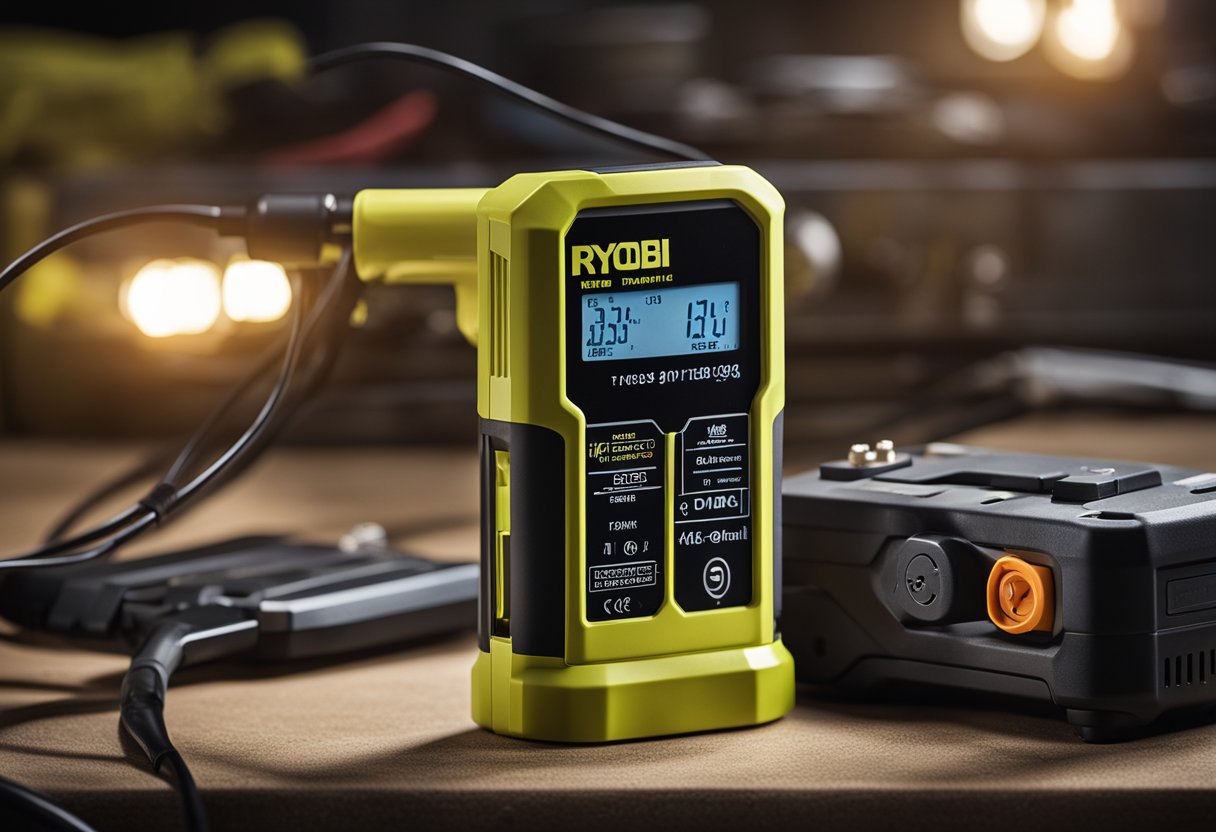
As a Ryobi battery owner, you might be wondering how long it takes to charge your battery. The charging time of a Ryobi battery depends on several factors, including:
1. Battery Capacity
Ryobi batteries come in different capacities, ranging from 1.5Ah to 9.0Ah. The charging time of a Ryobi battery depends on its capacity, with higher capacity batteries taking longer to charge. For example, a 1.5Ah battery will take less time to charge than a 9.0Ah battery.
2. Charging Method
The charging method you use also affects the charging time of your Ryobi battery. Ryobi batteries can be charged using either a standard charger or a rapid charger. A standard charger takes longer to charge a battery, while a rapid charger charges the battery faster. However, rapid charging can reduce the overall battery life.
3. Charger Specifications
The specifications of the charger you use also affect the charging time of your Ryobi battery. The charger’s output voltage and amperage determine how fast the battery charges. A higher output voltage and amperage will charge the battery faster, but it can also reduce the battery’s lifespan.
4. Temperature Conditions
The temperature conditions under which you charge your Ryobi battery can also affect the charging time. Extreme temperatures, whether hot or cold, can affect the battery’s performance and charging speed. It is best to charge your battery at room temperature, around 68°F to 77°F.
5. Battery Condition and Age
The condition and age of your Ryobi battery can also affect the charging time. A brand new battery will charge faster than an old one. Similarly, a well-maintained battery will charge faster than a poorly maintained one. It is important to keep your battery clean and free from dirt and debris.
In conclusion, the charging time of a Ryobi battery depends on several factors, including battery capacity, charging method, charger specifications, temperature conditions, and battery condition and age. By understanding these factors, you can optimize the charging time and ensure that your battery is ready to tackle any project swiftly.
How to Prolong Battery Lifespan
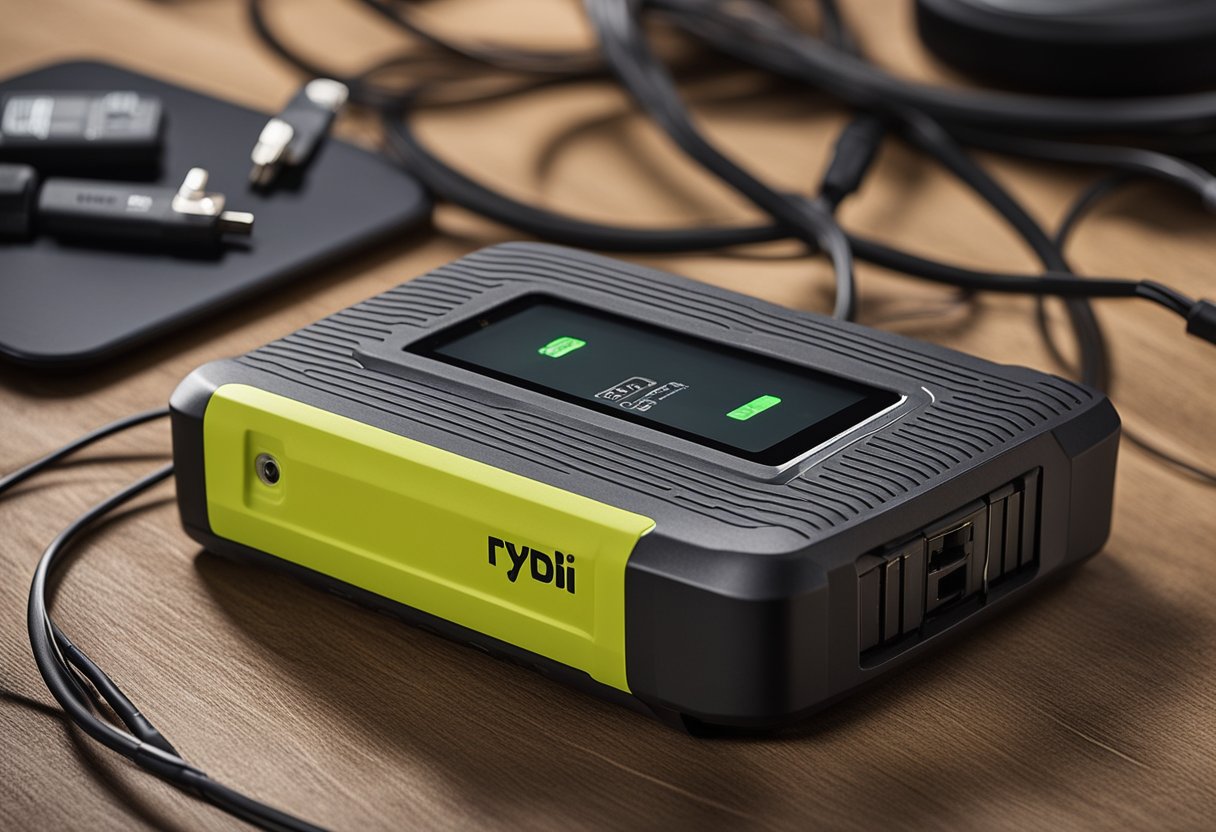
As a Ryobi user, you want your batteries to last as long as possible. Here are some tips to help you prolong the lifespan of your Ryobi batteries:
Store Your Battery Properly
When not in use, store your batteries in a cool, dry place. Avoid storing them in direct sunlight or in a place that is too hot or too cold. This will help prevent damage to the battery and prolong its lifespan.
Charge Your Battery Correctly
Make sure to charge your battery correctly. Overcharging or undercharging can damage the battery and shorten its lifespan. Follow the charging instructions that came with your battery, and always use a Ryobi charger.
Maintain Your Battery
Maintaining your battery is key to prolonging its lifespan. Keep the contacts clean and free of debris, and inspect the battery regularly for any signs of damage. If you notice any damage, do not use the battery and replace it immediately.
Recycle or Recondition Your Battery
When your battery is no longer holding a charge, consider recycling it. Ryobi batteries are recyclable, and recycling them is good for the environment. If you want to try to recondition your battery, there are many tutorials available online that can guide you through the process.
Avoid Memory Effect
Memory effect is a phenomenon that can occur when a battery is not fully discharged before being recharged. This can cause the battery to “remember” its previous charge level and shorten its lifespan. To avoid memory effect, make sure to fully discharge your battery before recharging it.
By following these tips, you can help prolong the lifespan of your Ryobi batteries and ensure that they remain long-lasting and reliable.
Safety Measures During Charging
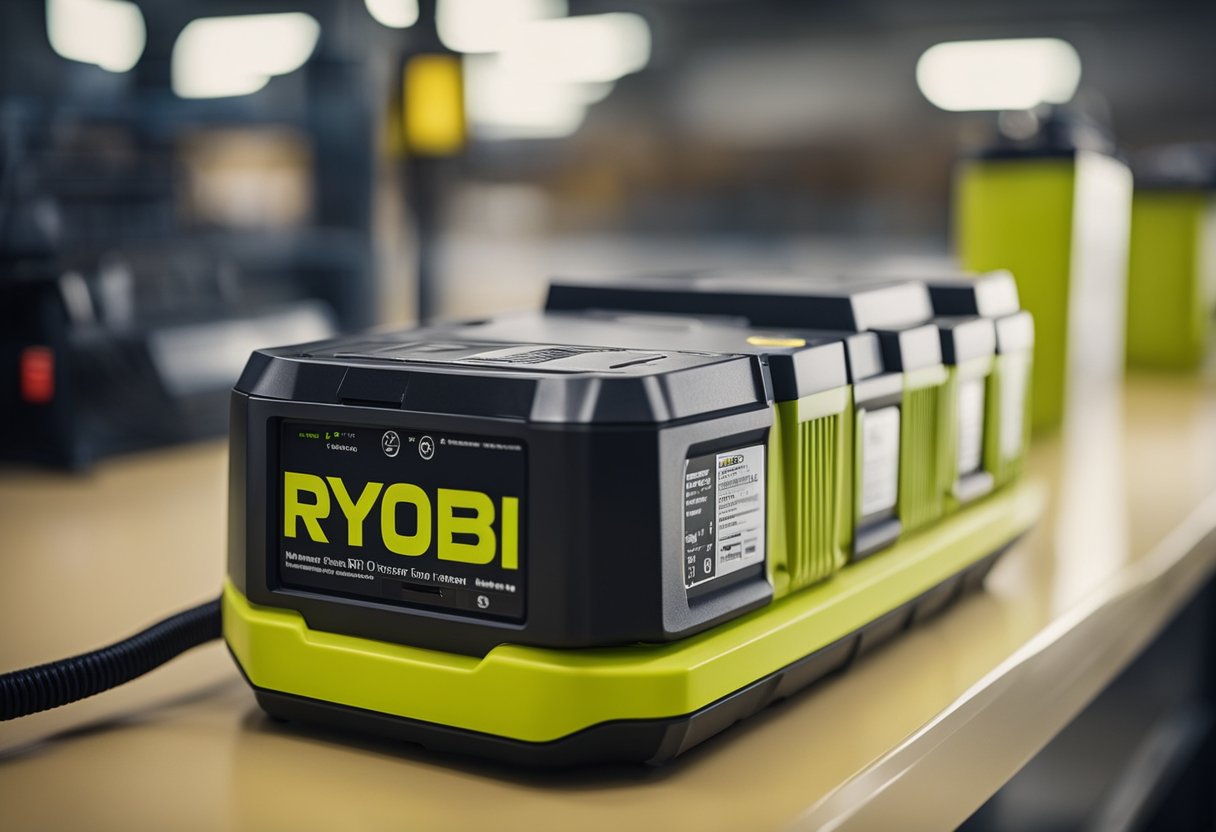
As a responsible Ryobi battery user, I always prioritize safety during charging. It is essential to follow the safety guidelines to prevent any accidents that may occur during charging. Here are some safety measures that I follow:
Temperature Considerations
I always make sure that the battery and charger are kept at room temperature during charging. Charging a battery that is too hot or too cold can cause damage to the battery and even lead to overheating or explosion. It is also essential to avoid charging the battery in direct sunlight or near a heat source.
Use Safety Features
Ryobi batteries come with built-in safety features that protect against overcharging, overheating, and short circuits. I always make sure to use the correct charger for the battery and never use a damaged or faulty charger. It is also essential to check the battery and charger for any signs of damage before charging.
Do Not Overcharge
Overcharging a battery can cause damage to the battery and even lead to overheating or explosion. I always make sure to monitor the charging process and remove the battery from the charger once it is fully charged. It is also essential to avoid leaving the battery on the charger for an extended period.
By following these safety measures, I can ensure that my Ryobi battery is charged safely and efficiently. It is essential to prioritize safety during charging to prevent any accidents that may occur.
Understanding Charging Efficiency
When it comes to charging Ryobi batteries, charging efficiency is an important factor to consider. Charging efficiency refers to how quickly and effectively a battery can be charged. A battery with high charging efficiency will charge quickly and provide longer runtime.
The charging efficiency of a Ryobi battery can be affected by several factors such as the power source, the charger type, and the electric power tool it is being used with. For instance, using a charger with a higher amperage rating can charge a battery faster. A 1 amp charger will charge a 1.5 Ah battery in approximately 1.5 hours, while a 4 amp charger will charge the same battery in about 30 minutes.
It is worth noting that faster charging times may not always result in the best charging efficiency. Charging a battery too quickly can reduce its overall lifespan and affect its runtime. Therefore, it is recommended to use a charger that is designed for the specific Ryobi battery model and follow the manufacturer’s recommended charging times.
The estimated charging times for Ryobi batteries can vary depending on the battery capacity and the charger type. For instance, a Ryobi 18V 4.0 Ah battery can take approximately 60 minutes to charge with a 4 amp charger, while a Ryobi 40V 5.0 Ah battery can take up to 90 minutes to charge with a 2.0 Ah charger.
In summary, understanding charging efficiency is crucial when it comes to charging Ryobi batteries. By using the right charger and following the recommended charging times, you can ensure that your battery charges quickly and effectively, while also maximizing its runtime and lifespan.
Choosing the Right Charger
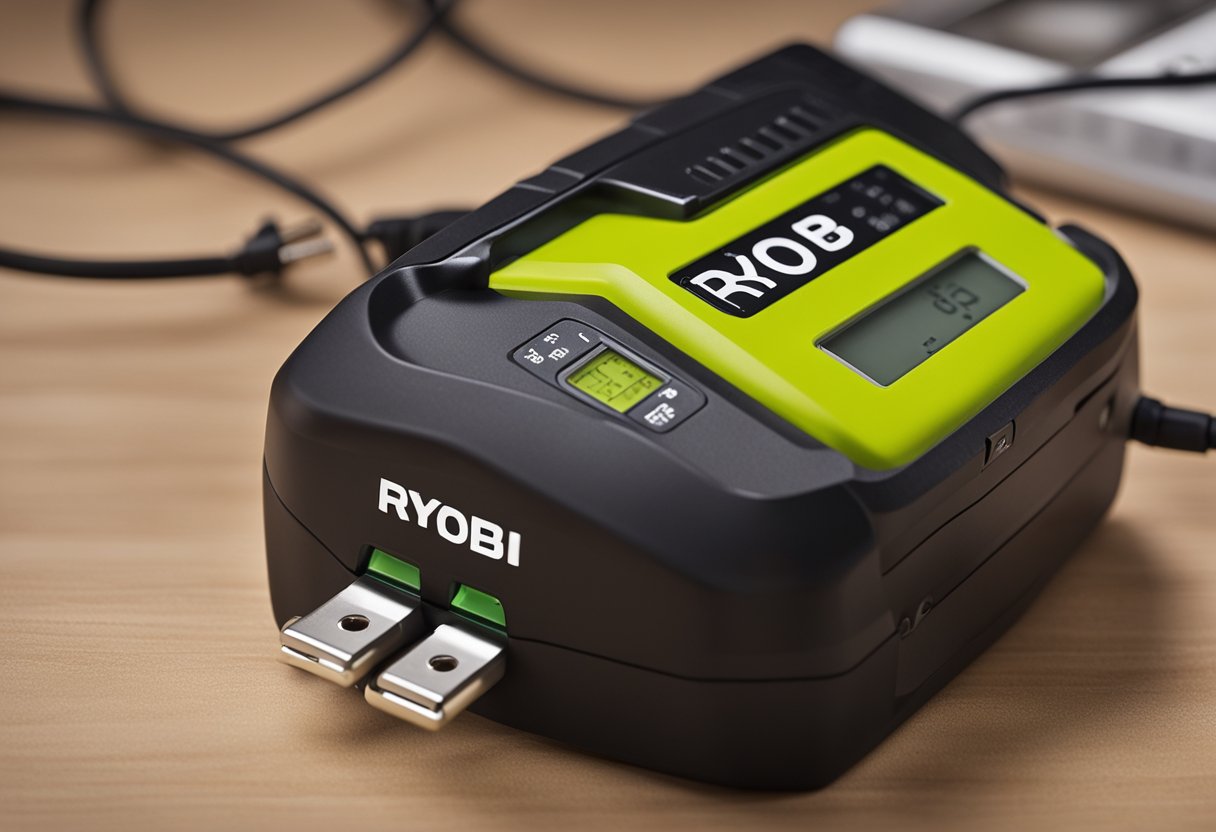
When it comes to charging your Ryobi batteries, it’s important to choose the right charger to ensure that your battery is charged properly and efficiently.
First, refer to your product manual to determine the appropriate charger type for your battery. Ryobi offers a variety of chargers, including standard chargers and rapid chargers. Standard chargers typically take longer to charge your battery, while rapid chargers can charge your battery in as little as 30 minutes.
If you’re looking for an affordable option, Ryobi’s standard charger is a great choice. It’s compatible with all Ryobi 18V ONE+ batteries and can fully charge a 2.0 Ah battery in just one hour.
It’s important to note that charging times can vary based on the battery’s capacity, the type of charger, and the level of depletion. For example, a 6.0+ Ah high-capacity battery will take longer to charge than a 1.3 – 1.5 Ah compact battery.
To ensure that your battery is charged properly, make sure to use a Ryobi charger that is compatible with your battery and follow the instructions in your product manual.
How Long Do Ryobi Batteries Last
As a Ryobi tool owner, I know how important it is to have a reliable battery that can last through a job without needing to be recharged. The lifespan of a Ryobi battery depends on several factors, including the type of battery, the capacity of the battery, and the type of work being done.
Ryobi Batteries Last
Ryobi offers a range of batteries with different capacities, including 18V lithium-ion (Li-ion) batteries and nickel-cadmium (NiCad) batteries. Generally, Li-ion batteries have a longer lifespan compared to NiCad batteries. According to Storables, a Ryobi Li-ion battery can last up to 5 years or 500 charge cycles, whichever comes first. On the other hand, a Ryobi NiCad battery can last up to 3 years or 300 charge cycles.
Ryobi 18V Lithium Battery
Ryobi 18V lithium batteries are popular among tool owners because they are lightweight and have a longer lifespan compared to other battery types. According to Battery Tools, a Ryobi 18V lithium battery can last up to 4 years or 2000 charge cycles. However, the lifespan of the battery also depends on the capacity of the battery and the type of work being done.
Table of Contents
- How Long Do Ryobi Batteries Last
- Ryobi Batteries Last
- Ryobi 18V Lithium Battery
In conclusion, Ryobi batteries have a lifespan that depends on several factors, including the type of battery, the capacity of the battery, and the type of work being done. As a Ryobi tool owner, it is essential to choose the right battery for the job and to take proper care of the battery to ensure it lasts as long as possible.
Frequently Asked Questions
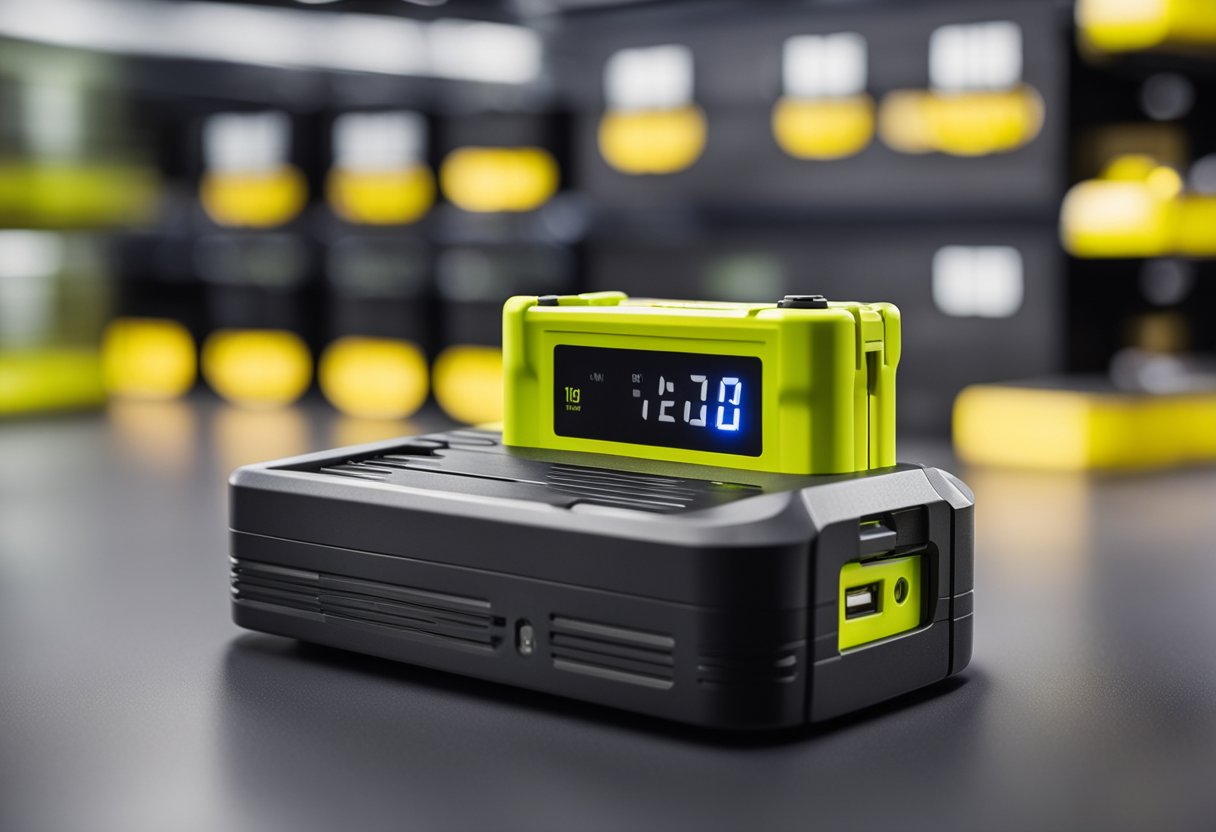
What is the charging time for a Ryobi 18V 2Ah battery?
The charging time for a Ryobi 18V 2Ah battery is typically around 60 minutes, according to Battery Skills. However, the charging time may vary depending on the charger and battery model.
How long does it take to charge a Ryobi 40V lithium battery?
The charging time for a Ryobi 40V lithium battery depends on the charger used. According to Storables, using a Ryobi 40V charger, it takes approximately 90 minutes to fully charge a 2.6 Ah battery. However, the charging time may vary depending on the battery capacity and charger model.
Can Ryobi batteries be left on the charger?
Yes, Ryobi batteries can be left on the charger without damaging the battery or the charger, according to Battery Story. However, it is recommended to remove the battery from the charger once it is fully charged to prevent overcharging.
How can you tell when a Ryobi battery is fully charged?
Ryobi batteries have LED fuel gauges that indicate the battery’s charge level. When the battery is fully charged, all of the LED lights will be solid, according to Storables. Additionally, some Ryobi chargers have indicator lights that turn off or change color when the battery is fully charged.
What is the charging time for a Ryobi 36V battery?
The charging time for a Ryobi 36V battery varies depending on the battery capacity and charger model. According to Battery Skills, it takes approximately 60 minutes to fully charge a 36V 2Ah battery using a Ryobi 36V charger.
Are Ryobi battery chargers interchangeable between different models?
Yes, Ryobi battery chargers are interchangeable between different models, as long as the voltage and chemistry of the battery and charger match, according to Storables. However, it is important to note that some chargers may charge batteries faster than others, depending on the charger model and battery capacity.

Hi, I’m Sal Muller of Tooltrip.com. My DIY experience led me to understand essential power tools for home projects. Tooltrip.com guides enthusiasts and professionals in choosing right tools for any job. I provide concise top tool reviews for easier, efficient DIY.

